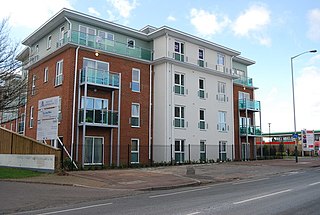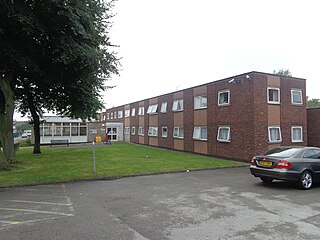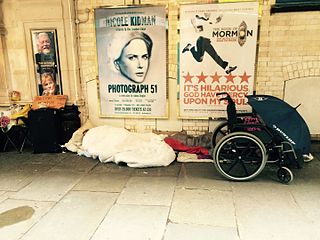Local government in Wales is primarily undertaken by the twenty-two principal councils. The councils are unitary authorities, meaning they are responsible for providing local government services within their principal area, including education, social work, environmental protection, and most highway maintenance. The principal areas are divided into communities, most of which have an elected community council. The services provided by community councils vary, but they will typically maintain public spaces and facilities. Local councils in Wales are elected; the most recent local elections in Wales took place in 2022, and the next are due to take place in 2027.

In Ireland and the United Kingdom, housing associations are private, non-profit making organisations that provide low-cost "social housing" for people in need of a home. Any budget surplus is used to maintain existing housing and to help finance new homes and it cannot be used for personal benefit of directors or shareholders. Although independent, they are regulated by the state and commonly receive public funding. They are now the United Kingdom's major providers of new housing for rent, while many also run shared ownership schemes to help those who cannot afford to buy a home outright.
Communities First was a Welsh Government programme aimed at reducing poverty. The programme was community focused and supported the most disadvantaged people in the most deprived areas of Wales with the aim of contributing to alleviating persistent poverty.
Hornsey Housing Trust was set up in 1933 by Margaret Hill with the purpose of housing people in the Hornsey and Crouch End areas of North London. Since that time, it has grown to become a specialist provider of a range of housing, support and care options for over 400 older people and people with other support needs. Hornsey's focus is within north and east London, building from its base in Haringey. It is a partners involved in delivering the Supporting People strategy in Haringey.
Shaw Trust is a charitable organisation in the United Kingdom which supports people with complex needs into good work. It was founded in the village of Shaw in Wiltshire in 1982.
Housing Benefit is a means-tested social security benefit in the United Kingdom that is intended to help meet housing costs for rented accommodation. It is the second biggest item in the Department for Work and Pensions' budget after the state pension, totalling £23.8 billion in 2013–14.
Local Housing Allowance (LHA) was introduced by the government of the United Kingdom on 7 April 2008 to provide Housing Benefit entitlement for tenants renting private-sector accommodation in England, Scotland and Wales. The LHA system introduced significant changes to the way Housing Benefit (HB) levels are restricted and how benefit is paid. It did not replace Housing Benefit - it is just a different way of calculating entitlement under the existing Housing Benefit scheme: the Local Housing Allowance is based on the 30th percentile of local rented accommodation, while the 50th percentile or median was used from the introduction of the policy until 2011. LHA rates relate to the area in which the housing-benefit claim is made. These areas are called "Broad Rental Market Areas", defined as "where a person could reasonably be expected to live taking into account access to facilities and services", and a selection of rents in the area are used to determine the LHA for each category of housing in the area.
The Rough Sleepers Initiative was an initiative by the Government of the United Kingdom's Rough Sleepers Unit (RSU), which resulted from a campaign by St Mungo's, a London homelessness charity, called National Sleep Out Week. It was designed to accommodate homeless people with emergency hostels.

In England, local authorities have duties to homeless people under Part VII of the Housing Act 1996 as amended by the Homelessness Act 2002. There are five hurdles which a homeless person must overcome in order to qualify as statutory homeless. If an applicant only meets the first three of these tests Councils still have a duty to provide interim accommodation. However an applicant must satisfy all five for a Council to have to give an applicant "reasonable preference" on the social housing register. Even if a person passes these five tests councils have the ability to use the private rented sector to end their duty to a homeless person.
Nacro is a social justice charity based in England and Wales, established in 1966 from the previous National Association of Discharged Prisoners’ Aid Societies, it became the largest criminal justice-related charity in England and Wales. In the 1970s Nacro also became involved in policy discussions with the British Government, particularly with the Home Office, which has responsibility for prisons and probation services. Since 2011, its strategy has focused on extending its high-level influence at government level, with commissioners, policy makers and practitioners, and increasing its partnership work.

{{use dmy dates} Sheltered housing or sheltered accommodation are terms covering a wide range of rented housing for older and/or disabled or other vulnerable people.
Thames Reach is a London-based charity working with those suffering from homelessness.

Homelessness in the United Kingdom is measured and responded to in differing ways in England, Scotland, Wales and Northern Ireland, but affects people living in every part of the UK's constituent countries.
The Welsh Refugee Council is a sister organisation to the Refugee Council and Scottish Refugee Council, and works to help asylum seekers and refugees in Wales.
Crisis accommodation is housing provided to people experiencing temporary or ongoing conditions of mental or physical health challenges. It aims to remove them from an otherwise harmful environment and allowing them to improve their situations from a safe and stable environment. Situations that may be alleviated through crisis accommodation include but are not limited to homelessness, domestic violence, elder abuse, and child abuse. Crisis accommodation is typically provided through government organisations, not-for-profit organisations and charities. Crisis accommodation is also known as housing subsidies in other words. Crisis accommodation is provided everywhere around the world across various countries. There are other factors such as availability of the services and reasons like poverty and accumulation of debt that affect homelessness which needs to be taken into account in order to solve it as more people tend to look for urgent support when they are facing this crisis.
Single Homeless Project is a registered charity working to help single Londoners by preventing homelessness, providing support and accommodation, promoting wellbeing, enhancing opportunity and being a voice for change.
Homeshare is the exchange of housing for help in the home. A householder, typically an aged person with a spare room, offers free or low-cost accommodation to another person in exchange for an agreed level of support. The support may include companionship, shopping, household tasks, gardening, care of pets and, increasingly, help to use the computer. Homeshare thus provides a solution to the needs of two groups of people - those in need of affordable housing, often younger people, and those in need of some support to live at home, usually older people. Homeshare programmes, many run by voluntary bodies, have taken root in at least thirteen countries worldwide, some of them with public funding.
The under-occupancy penalty results from a provision of the British Welfare Reform Act 2012 whereby tenants living in public housing with rooms deemed "spare" face a reduction in Housing Benefit, resulting in them being obliged to fund this reduction from their incomes or to face rent arrears and potential eviction by their landlord.

Clarion Housing Group is the largest housing association in the United Kingdom with 125,000 properties across more than 170 local authorities. Clarion Provides a home to over 350,000 people.

Test, Trace, Protect is a government-funded service in Wales, first published on 13 May 2020 by the Welsh Government to track and help prevent the spread of COVID-19. Its aim is to "enhance health surveillance in the community, undertake effective and extensive contact tracing, and support people to self-isolate".





